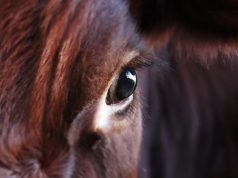By Margarita Lysenkova, Manager – Sector Program, GRI
As the global community gears up for the 2021 UN Food Systems Summit, it is significant that preparations are also underway by Global Reporting Initiative (GRI) to deliver a new sector reporting standard for agriculture, aquaculture, and fishing.
The Summit aims to leverage the power of food systems to deliver progress on the Sustainable Development Goals (SDGs). Yet, unlocking the contribution of companies in the food production sectors will be impossible without clarity on their sustainable development impacts.
Research and rationale
The draft Standard’s content is the culmination of more than 12 months of rigorous research by our Sector Team, drawing on authoritative sources and a multi-stakeholder process. A 19-member expert working group was instrumental in developing the exposure draft. Reflecting diverse backgrounds, it includes representatives from five continents and constituencies, with a unique combination of sectoral skills and organizational experience, including crop and animal production, aquaculture, and fishing.
By including topics not covered by existing GRI Standards, we have expanded the breadth of reporting guidance for agriculture, aquaculture, and fishing organizations to identify their most significant impacts – thereby supporting decision-useful data that can be a catalyst for the adoption of more sustainable practices.
The seven new topics
The newly introduced topics in the draft Standard are:
- Food security recognizes the sectors’ central role in food production, guiding organizations to describe commitments to ensure their operations contribute to stability of food supply and access to food, including how they work with other organizations.
- Land and resource rights calls on companies to report how they respect individuals’ and communities’ land rights (including those of indigenous people). It also asks about their operations and suppliers whose access or rights to natural resources cannot be assured.
- Living income addresses whether companies provide enough for workers and producers supplying to them to afford a decent standard of living. The topic also deals with reporting on the proportion of employees paid above living wage.
- Natural ecosystem conversion covers policies, commitments and monitoring tools to reduce or eliminate activities that change natural ecosystems to another use or profoundly change an ecosystem’s structure or function.
- Soil health guides reporting on soil management plans and fertilizer application.
- Pesticides use focuses on how organizations manage and use chemical or biological substances for controlling pests or regulating plant growth.
- Animal health and welfare addresses the approach to animal health planning and use of welfare certification schemes or audits, as well as disclosing the use of any medicinal or hormone treatments.
Grounded in the SDGs
With positive and negative impacts that link to the SDGs, all of the topics covered in this Sector Standard, and the way it is structured, will make it easier for businesses to understand their contribution to the achievement of the SDGs – and how they can contribute towards solutions.
Perhaps more than any other sector, agriculture, aquaculture, and fishing organizations have wide-ranging impacts that touch on all of the 17 SDGs. In particular, this new Standard makes multiple linkages between topics and goals on ending poverty (Goal 1); ending hunger (Goal 2); ensuring the availability and sustainable management of water and sanitation (Goal 6); promoting decent work for all (Goal 8); reducing inequalities (Goal 10); ensuring sustainable consumption and production (Goal 12); taking climate action (Goal 13); protecting life below water (Goal 14) and life on land (Goal 15); ensuring peace and justice (Goal 16); and building partnerships (Goal 17).
We need your input
The global public comment period to gather feedback on the exposure draft for Agriculture, Aquaculture, and Fishing Sector Standard closes on 30 July. We encourage you to channel your considerations on this draft’s feasibility, completeness, and relevancy by completing an online questionnaire. The more input from all interested groups and stakeholders, the more we can do to ensure the delivery of a Standard that is fit-for-purpose.
Our hope for the final Standard, which we intend to launch in 2022, is to empower organizations to achieve meaningful and consistent sustainability reporting that supports sustainable food systems and encourages responsible fishing and farming practices. We all know that companies within these sectors are essential for providing the food and resources that human wellbeing depends on. Let’s ensure that they can do so in a way that contributes to lasting and sustainable solutions.








